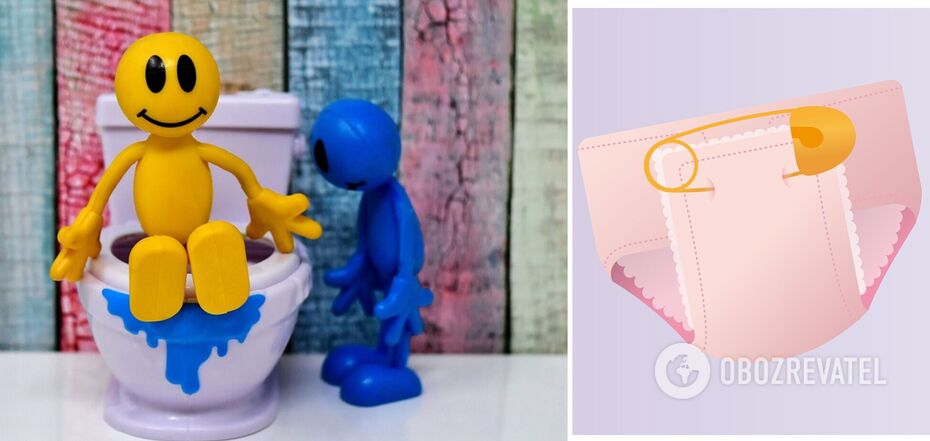Society
Bedwetting in children: causes, diagnosis, treatment
With the birth of a child, parents are immersed in an unfamiliar world in which, in addition to constant care and all-encompassing love, there are also childhood illnesses. The first encounter with them can frighten and confuse parents, but medical advice can help to overcome this. One of the childhood diseases is bedwetting - nocturnal or daytime urinary incontinence in a child over 5 years old.
All children learn to control their bladder as they get older, but for some it happens later in life and needs to be monitored. WebMD, in consultation with general and emergency pediatrician Amita Stoff, M.D., discussed the causes and symptoms of bedwetting and how to treat it.
What is bedwetting and what causes it?
Babies are unable to control their defecation from birth, but they develop these skills with others up to a certain age. The term "bedwetting" or urinary incontinence can be applied to a child who has not learned to control the bladder after crossing the 5-year mark. The disorder can occur both during the day (daytime enuresis) and at night (nocturnal enuresis), or it can be combined.
A diagnosis can be made under certain conditions:
repeated nocturnal urinary incontinence;
wetting clothes;
wetting the underwear at least twice a week for three months.
There is no single cause of bedwetting, but among the main provoking factors doctors name: a small bladder; persistent infections of the urinary system; severe stress; and developmental delays that interfere with potty training.
As we can see, the causes of urinary incontinence are often not only physical, but also emotional. Experts also point out that the problem may be due to genetic predisposition, and advise not to accelerate the process of potty training until the child understands his or her own needs and is able to control the processes of urination and defecation.
How to diagnose bedwetting?
As mentioned above, the diagnosis of nocturnal urinary incontinence is not made for children under the age of 5. However, if your children are older and continue to wet the bed, you should visit your pediatrician.
First, the doctor performs an examination to rule out physical causes that may lead to the condition. Later, laboratory tests, such as a urinalysis, may be needed to see if your child has a urinary tract infection.
The doctor may also suggest checking kidney function, blood sugar levels, and hormone levels, since diabetes, for example, can lead to urinary incontinence in children.
If your child is taking any medications, you should tell your pediatrician, as some of them can affect behavior and lead to confusion, which in turn can affect the ability to control urination.
If there is no physical cause, specialists make a diagnosis based on complaints and general symptoms.
How to treat bedwetting?
Medical care for the disorder will depend on the causes. Sometimes it may not be necessary at all, because the child has no physical or psychological reasons for the disorder and will simply outgrow it over time.
If a urinary tract infection has been detected, the doctor will prescribe medication therapy to relieve inflammation of the kidneys and bladder. If the cause of urinary incontinence is emotional instability or stress in the child, causes that may have negatively affected the child's psyche should be excluded.
As a rule, doctors recommend behavioral therapy to gradually develop the correct skills in the child, which is effective in most patients.
For example, you can try to train the bladder by organizing scheduled trips to the bathroom with gradually increasing intervals to develop the habit of holding the urine for a longer period of time. Such exercises help to increase bladder muscles.
Never scold or shame your child, you can only make the problem worse. On the contrary, try to encourage him - come up with a system of small rewards if the crib is dry in the morning or the child woke up and asked to go potty.
There are medications to treat bedwetting that affect the volume of urine produced and increase bladder size, as well as antidepressants. Although these medications may be helpful in some cases, symptoms may return after withdrawal and persist until behavioral therapy works.
Nocturnal urinary incontinence is an unpleasant and sometimes long-lasting disorder. However, following expert advice, calmness, patience, and parental support will help your child overcome it and grow up healthy and confident.
Previously OBOZREVATEL reported that children who are constantly away from home are under a lot of stress, but it can be reduced by quality family entertainment in the evening.



























